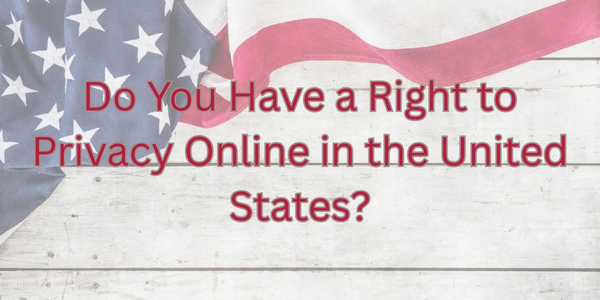In an age where much of our personal and professional lives unfold online, the question arises: Do Americans have a legal right to privacy on the internet? The answer is complex. While the United States does not have a single, comprehensive law that explicitly establishes a universal “right to privacy” online, a mix of federal and state laws provides partial protections in specific contexts.
Let’s explore what privacy means in the digital age and how U.S. law handles it.
No Universal Federal Right to Internet Privacy
Unlike the European Union’s General Data Protection Regulation (GDPR), as of July 2025, the U.S. lacks a broad federal law that guarantees a general right to data privacy. Instead, privacy protections come from a patchwork of sector-specific and situational laws.
The Constitution: Limited Protection
The Fourth Amendment of the U.S. Constitution protects individuals from “unreasonable searches and seizures,” which courts have interpreted to include certain forms of digital data. However, this applies primarily to government surveillance, not private companies or websites.
Key Federal Laws That Impact Online Privacy
Several federal laws offer protections in specific areas of internet activity:
1. Federal Trade Commission Act (FTC Act)
Section 5 of this act prohibits “unfair or deceptive practices.” The FTC uses this authority to penalize companies that misuse or misrepresent how they collect and use personal data online.
2. Children’s Online Privacy Protection Act (COPPA)
COPPA requires websites and online services targeting children under 13 to obtain verifiable parental consent before collecting personal information.
3. Electronic Communications Privacy Act (ECPA) and Stored Communications Act (SCA)
These laws limit unauthorized access to digital communications. However, they were enacted in the 1980s and are widely considered outdated in the era of cloud computing and social media.
4. Health Insurance Portability and Accountability Act (HIPAA)
This law protects medical information handled by covered entities, including certain healthcare websites and apps.
5. Gramm-Leach-Bliley Act (GLBA)
Applies to financial institutions and sets requirements for how consumer data is handled and disclosed.
The Rise of State-Level Privacy Laws
Because of the federal government’s slow pace in enacting comprehensive privacy legislation, several states have stepped in to fill the gap.
California: Leading the Way
The California Consumer Privacy Act (CCPA) and its enhancement, the California Privacy Rights Act (CPRA), are the most robust privacy laws in the U.S. They give California residents the right to:
- Know what data companies collect
- Request deletion of their data
- Opt out of the sale of their personal information
- Correct inaccurate personal data
- Limit use of sensitive personal information
These laws apply to many businesses even if they’re not physically located in California, provided they serve California residents.
Other States Following Suit
Several other states have passed similar legislation:
- Virginia – Consumer Data Protection Act (VCDPA)
- Colorado – Colorado Privacy Act
- Connecticut – Data Privacy Act
- Utah – Consumer Privacy Act
Each of these laws has its own nuances but generally echoes California’s approach.
Proposed Federal Legislation
There have been multiple attempts to pass a comprehensive federal privacy law, such as the proposed American Data Privacy Protection Act (ADPPA). As of mid-2025, however, no such law has been enacted.
What This Means for You
While there is no blanket “right to privacy” online under federal law, you are not without protections:
- The FTC can enforce privacy promises made by companies.
- Certain types of data, like health, financial, and children’s data, are protected under specific laws.
- If you live in a state with strong privacy laws, such as California, you have broader rights over your personal information.
Final Thoughts
The legal landscape of internet privacy in the United States is fragmented. Until a comprehensive federal law is passed, your privacy rights will depend on where you live, what kind of data is being collected, and who is collecting it.
For now, being informed, reading privacy policies, and using privacy-enhancing tools are your best defenses.
